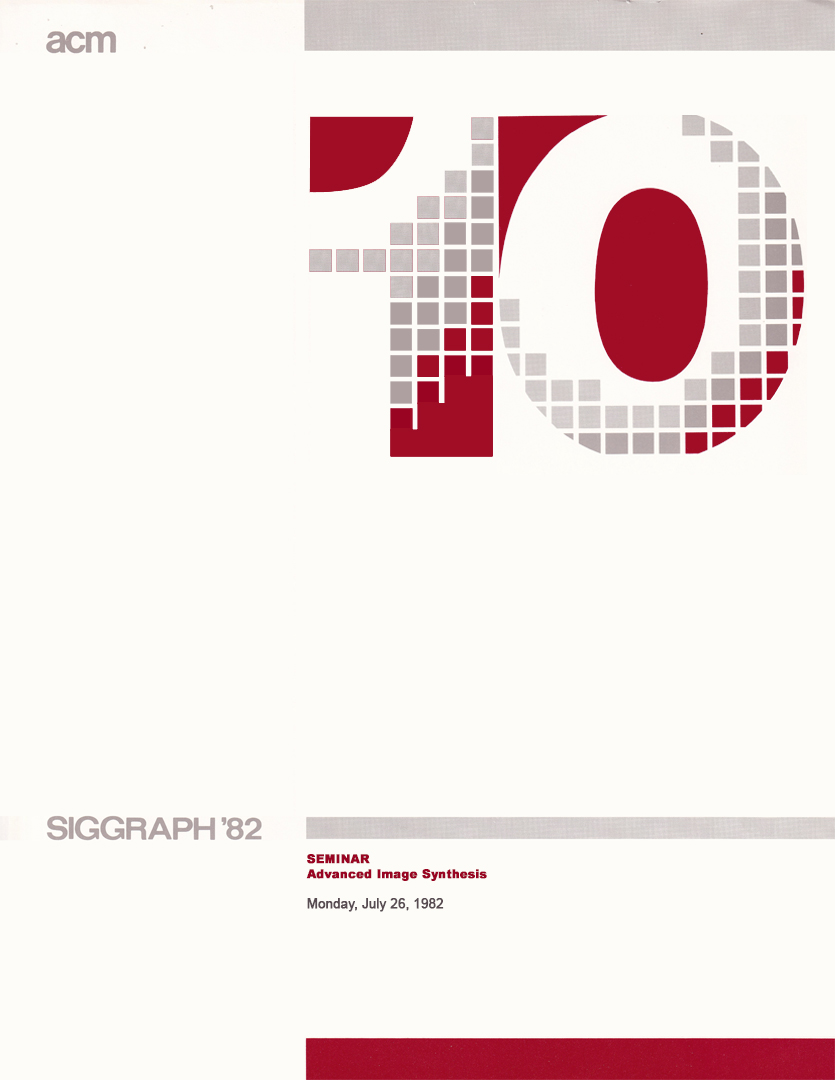“Advanced Image Synthesis” by Fuchs, Whitted, Crow and Max
Conference:
Type(s):
Entry Number: 10
Title:
- Advanced Image Synthesis
Course Organizer(s):
Presenter(s)/Author(s):
Abstract:
Description
This seminar is concerned with the generation of realistic-looking pictures of three dimensional objects. Historically, image synthesis algorithms have been developed in turn for polygonal objects, polygonal approximations of curved objects, and finally curved objects themselves. In the course of this development, researchers have addressed issues such as the efficiency of display algorithms, geometric fidelity of synthetic images, the accuracy of models used for simulated light reflection, and artifacts introduced by the Image synthesis process. These issues are topics for this seminar as well. They will be discussed by lecturers who developed many of the techniques described.
The first session of the seminar will survey visible surface algorithms for polygonal surfaces. Including innovative hardware implementations. Henry Fuchs’ recent work concentrates on fast display algorithms as well as VLSI based display systems. In the second session the survey will extend to curved surface display techniques and shading models. Turner Whitted has done work in both areas.
The entire third session is devoted to anti-aliasing. Evidence of the importance of this topic is seen in the increasing number of papers describing anti-aliasing techniques and the proliferation of T-shirts calling for a ban on jaggies. Frank Crew has spent much of the past few years studying the aliasing problem and devising anti-aliasing procedures.
The final session is a discussion of several special purpose algorithms which take advantage of the parallelism of CDC-7600 and CRAY-1 computers. Nelson Max has used high performance computers and precision display peripherals to produce animated sequences of extraordinary quality.
The notes for the seminar are taken primarily from reprints of papers that are referenced in the oral presentation. The presentations themselves will generally follow the notes.
Contents/Schedule PDF:
Contributed By:
- Maxine Brown
Location:
- In the collection of Maxine Brown




